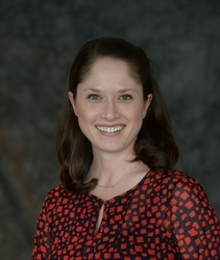S. Structural Change in Public Education Policy and Social Change Lab
Course Information
- Course Number
- L8016-SEM
- Curriculum Level
- Upperclass
- Areas of Study
- Administrative Law and Public Policy, Interdisciplinary Legal Studies, Legal Profession and Professional Responsibility, Racial, Economic, and Social Justice
- Type
- Seminar
- Additional Attributes
- Experiential Credit
Section 001 Information
Instructor
 James S. Liebman
Simon H. Rifkind Professor of Law
James S. Liebman
Simon H. Rifkind Professor of Law
 Elizabeth M Chu
Executive Director
Elizabeth M Chu
Executive Director
Section Description
The United States is in the midst of a massive restructuring of public-sector service delivery and regulation, particularly as they relate to the governance and management of its public schools. Staffed by broadly interdisciplinary teams of accomplished professionals, the most successful of the new federal, state, and local education organizations are replacing decades-old public bureaucracies and interest group politics with "learning organizations" committed to using public problem solving techniques to accelerate adult and institutional, as well student learning.
This Public Education Policy Seminar and Practicum brings Columbia Law students together with upper-level graduate students in law, business, education, and policy from Harvard, Michigan, NYU, Penn, Stanford, Vanderbilt, Yale, and other universities for a FULL SEMESTER OF INTENSIVE ENGAGEMENT with each other around transformational change in public education. 13 UNITS OF CREDIT ARE AWARDED. Second and third-year law students may take the course either in the fall semester or the spring semester. Participants in the program take part in a rigorous and rewarding learning experience, including:
(i) An engaging interdisciplinary seminar in the design, regulation, governance, democratic accountability, and transformation of K-12 school systems and allied public- and social-sector organizations;
(ii) Comprehensive skills training in team-based problem solving, managing multidimensional (legal, operational, etc.) projects to specified outcomes in complex environments, client counseling, and effective communication; and
(iii) A high-priority project designing and implementing legal and policy solutions to a complex problem at the core of a client public- or social-sector organizations mission to improve the educational outcomes and life chances of children.
A preference is given to Columbia Law applicants.
The Program Offers
*Intensive experiential learning on interdisciplinary teams and cutting-edge projects
* Deep engagement in public education improvement strategies and debates
* Panels and field trips interacting with prominent education leaders
* 1:1 mentoring, K-12 education career support, and networking opportunities
* Merit scholarships for exceptional students
* Challenging, fun, and meaningful work helping to improve kids learning and lives
Admission to the course is by application. Students interested in applying for the Fall 2021 semester should submit a resume, unofficial transcript, and letter of interest (500 word max) to [email protected] by June 30, 2021.
CPRL will offer a limited number of highly competitive Scholars Awards of up to $25,000 to students to apply to their CLS tuition in return for a commitment to spending time after graduation and judicial clerkships in a public or nonprofit job in the education sector. Students interested in an Award should include an additional 400-word statement discussing their interest in public education policy, their career goals, and how this financial support would affect their ability to work in the education sector after graduation.
For more information, including a course FAQ, names of Columbia Law students who have taken the previous version of the course, or lists of past projects in which students have engaged in the Course, please email [email protected].
- School Year & Semester
- Fall 2021
- Location
- JGH 304
- Schedule
-
Class meets on
- Monday
- Tuesday
- Wednesday
- Thursday
- Friday
- Points
- 5
- Method of Evaluation
- Other
- J.D Writing Credit?
- No
Learning Outcomes
- Primary
-
- Students acquire a working knowledge of, and take part in, the important current debates involving the reform and restructuring of K-12 education and educational institutions in the United States.
- Students understand how existing K-12 educational systems in the US, and the new structures under construction as part of the new K-12 reforms mirror and deviate from important structural, regulatory and administrative models.
- Students learn to work effectively in interdisciplinary teams to solve multi-dimensional problems using problem-solving structures that will contribute to their success in all professional settings, whether in the private, public or social sectors.
- Students are exposed to skilled leaders and middle managers, and gain access to employment opportunities, in the new public organizations engaged in K-12 problem-solving and restructuring.
- Working in cross-professional teams, students gain substantial exposure to the problem-solving activity of transforming public- and social-sector organizations and generate consequential, timely, high-priority, market-quality products for their clients.
Course Limitations
- Instructor Pre-requisites
- None
- Instructor Co-Requisites
- None
- Recommended Courses
- None
- Other Limitations
- NOTE: Enrollment is for the equivalent of a full semester's worth of credit -- 13 total units of credit/semester. See Course description for information on how to apply.